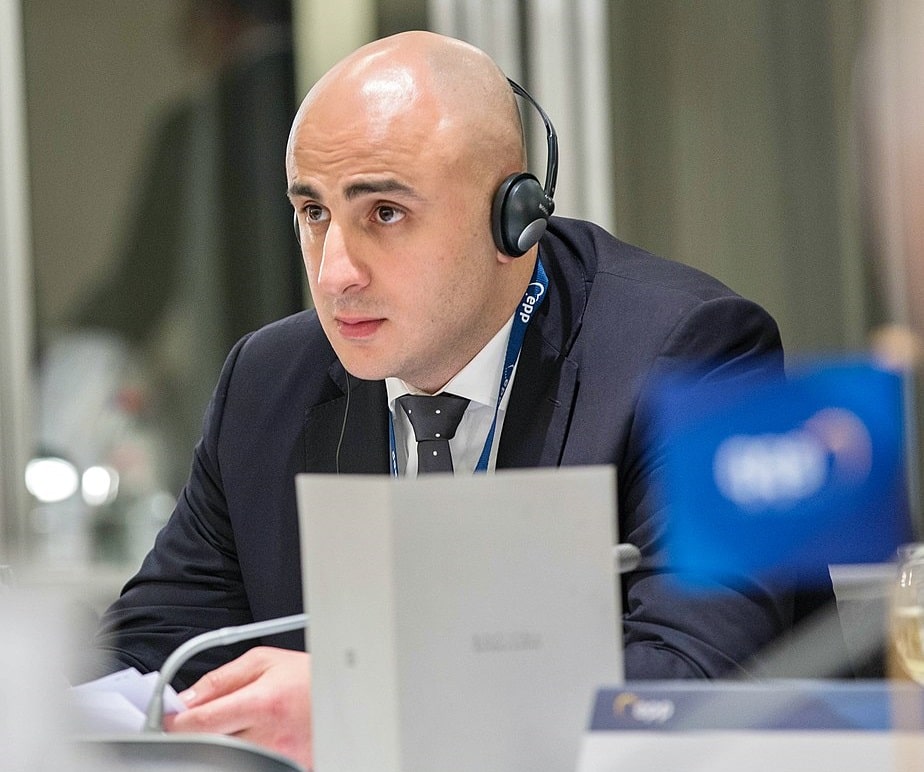Georgia was already in the middle of a political crisis, as the opposition parties refused to acknowledge the October 2020 election results. The Georgian Dream (GD) party gained a majority of the seats in parliament and installed a government. Since then the opposition, with one of its leaders Nika Melia, has been boycotting parliament. Earlier this month Melia was convicted of organizing “mass violence” during a 2019 opposition protest. The opposition views his conviction as a “witch hunt” and opposition supporters and other activists have en-masse taken to the streets. To de-escalate the situation, the country’s Prime Minister Giorgi Gakharia has stepped down. His successor Irakli Garibashvili, who has previously served as prime minister from 2013 to 2015, is not likely to be the change that protesters desire. Shortly after his instalment Melia was violently arrested in the opposition headquarters. The US and EU have condemned the action and have called upon Georgia’s government to seek a peaceful solution. The turmoil in the country contrasts the EU-Georgian discussions in Brussel about a Georgian bid for EU membership negotiations in 2024, which took place earlier this year.
October 2020 elections as the origin for political conflict
Under the watchful eye of the United States (US) and European Union (EU), amid the COVID-19 health crisis, the government of Georgia agreed to alter the country’s election process. The electoral changes were supposed to make it more difficult for the ruling party, GD at the time, to hold on to power. In October 2020 the first election with this new formula was held. The GD, which had been in power since its establishment in 2012, gained 90 out of 150 seats. This allowed it to form a government again, raising questions on the effectiveness of the electoral changes. As a consequence, the opposition parties, the largest of which is the UNM-led Strength is in Unity-United Opposition which obtained 36 seats, rejected the election result and refused to take up their seats in parliament. The opposition parties continue to claim that the election was rigged.
This created a political stalemate, which up until now has not been lifted. Parliament is boycotted by the supporters of the opposition parties. Together with other activists, they have taken to the streets since the election, demanding re-elections. International observers stated that the October elections were “competitive and, overall, fundamental freedoms were respected”, but mentioned that there had been “pressure on voters” when they wanted to cast their ballots. It does not seem likely that the current governing party GD will call early elections, considering how events have transpired since the conviction of opposition leader Nika Melia. With ongoing protests against the government it came as no surprise that the Georgian court ruled to detain Melia, because its rulings are often more based on political motifs than the law.
The conviction of opposition leader Melia escalates the situation
If convicted, Melia would face nine years of prison, as he is accused of organising “mass violence” during a 2019 anti-government protest, which took place in the country’s capital Tbilisi. At the violent protest 120 people were arrested. Melia refuses to acknowledge the court’s decision and argues that his detention is politically motivated, while the GD party rejects this claim. Directly after the court gave its verdict Melia stated that he was not willing to accept the court’s ruling and would not cooperate if the police would come to arrest him. He is the chairman of the United National Movement opposition party, who combined with other opposition parties, have called his detainment a “witch hunt”. Protests have been taking place in the country since the October elections, but more and more people took to the streets after the detention of Melia. The situations seemed to be escalating.
Prime Minister Gakharia resigns to stop polarization
In an attempt to de-escalate the situation in Georgia, Prime Minister Giorgi Gakharia of the GD party stepped down on February 18. It seems that he lost the internal debate on what kind of signal arresting an opposition leader would send. He surprised the country with his move, which he hoped would stop the ongoing process of polarization the country is in. As one of the more moderate members of the GD, he might have been more capable of doing so than his successor Irakli Garibashvili, who was installed as Prime Minister on February 22. With the resignation of Gakharia, the arrest of opposition leader Melia was delayed for a brief period. When Garibashvili was installed, he immediately stated that Melia would not be able to “hide from justice” and that the police would initiate his arrest. Garibashvili is seen as more of a hardliner than his predecessor. His two-year experience as Prime Minister of Georgia between 2013 and 2015 might help to bring some stability to the country, but he is the opposite of the “change” that those who have taken to the streets desire.
Western pressure on government to de-escalate the situation
In response to the political turmoil in Georgia, the United States (US) and European Union (EU) have called upon the Georgian government to de-escalate the worrying situation. In official statements made by the embassies, they urged the government not to arrest Melia, at the same time pleading the opposition not to resort to violence. The statement sent a clear message to the Georgian government: by not de-escalating the current political situation, you are moving more and more away from the West. This should be seen in light of the visit of Georgian President Salome Zurabishvili to Brussel in January of this year, to cement Georgia’s bid for the start of EU membership negotiations in 2024. Despite this, the arrest of Melia took place on February 23, when police detained him from his political headquarters. His violent arrest, as his supporters refused to back away from the police, was broadcasted live on national television.
After the violence erupted in Georgia and the government’s refusal to hear the calls of the US and EU, more and more question marks can be placed on the likelihood of Georgia applying for EU membership by 2024. Even though the 2024 membership application is also symbolic, as it would ten years after the signing of the EU-Georgia association agreement, developments such as these in the country are not what Georgians were hoping for. For many Georgians EU membership is a realistic long-term goal, which is becoming increasingly more unrealistic with the ongoing political crisis the country is in. What happens next is too complex to predict, but what is clear is that there are no simple solutions to the current situation. Long-term structural changes are necessary to solve the underlying problems of Georgia’s political system. It is to hope that the April momentum, when electoral changes were agreed upon, comes back as soon as possible.
Sources: Aljazeera, BBC, Euractiv, Eurasianet, Euronews1, Euronews2, Euronews3, Iwpr, Reuters Rferl1, Rferl2, Rferl3, Rferl4, Rferl5, Rferl6, Politico
Image: Wikimedia (Nika Melia)



